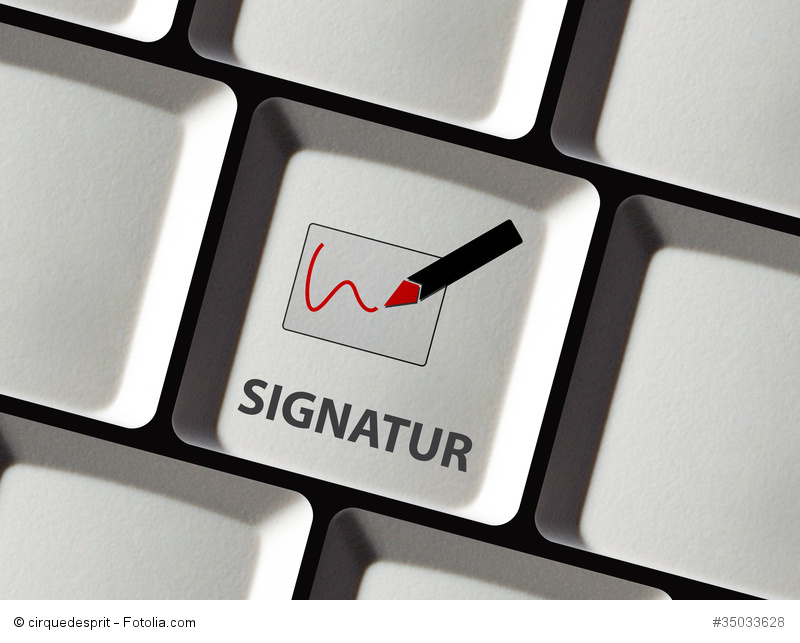Ensure legal certainty with digital signatures
Times like these when most communications – both of a personal and business nature – are made electronically give rise to the explicit need for the digital signature: one that is unalterable and satisfies the legal requirements of a handwritten signature.
The digital signature enables individuals to sign documents electronically. A digital signature is inseparably linked to a specific document, may be viewed by anyone, but can only be modified by the actual signatory. The technological basis for this is a mathematical method that enables anyone to check and verify the digital signature‘s origin and affiliation to the respective document.
Rapid developments in communications technology and the way these pervade our lives open up a whole new world of possibilities. Paying bills, ordering merchandise, and submitting paperwork to government agencies are just a few of the things we can do online today. Even the transmission of sensitive and critical business documents, which previously had to be forwarded on paper, is now being done electronically for the most part. This makes it all the more important to have a digital signature that can be used as the electronic equivalent of a legally binding handwritten one.
The Signature Act regulates the basics
Depending on the implied security requirements, the German Signature Act, for example, distinguishes between simple, advanced and certified digital signatures. Unlike a handwritten signature in digital form, which is relatively easy to copy, a digital signature uniquely links a document to the individual creating the signature. Here cryptographic methods are used to generate a pair of separate keys, one of which is a secret signing key (private key) and the other a public verification key (public key). Since only one private key each exists for the widely distributed public key, the identity of the individual making the signature can be checked and verified using the certification-service provider’s public listing, provided that an electronic certificate links the public key to the signature verification data of that individual.
The digital signature affords electronic documents the same legal character and effect as documents signed by hand. Besides saving resources, there is another major benefit over a handwritten signature, namely that any changes to the document are much easier to identify, which in turn helps ensure the integrity and binding nature of the electronic document. With webPDF you can affix a digital signature to PDF documents so that they comply with a wide range of different statutory requirements.

